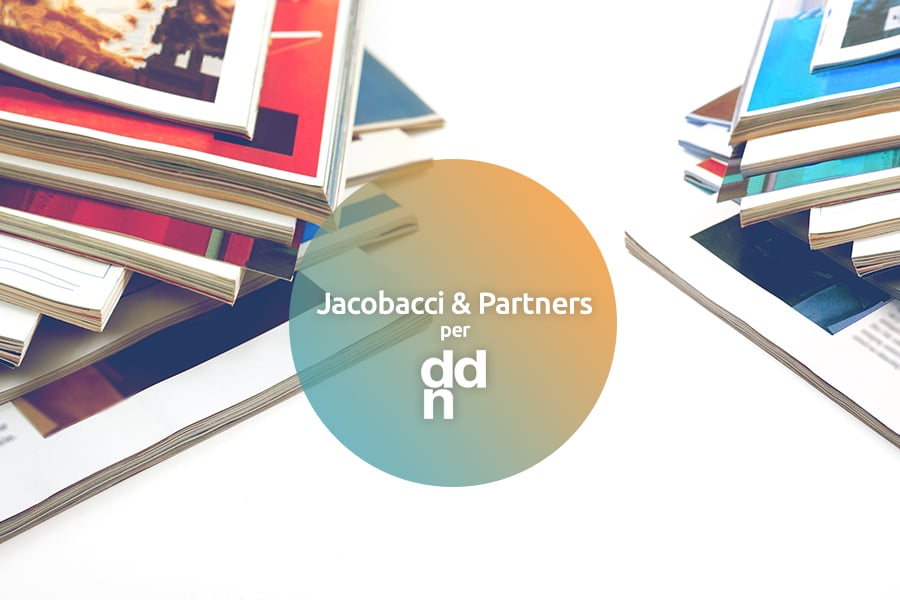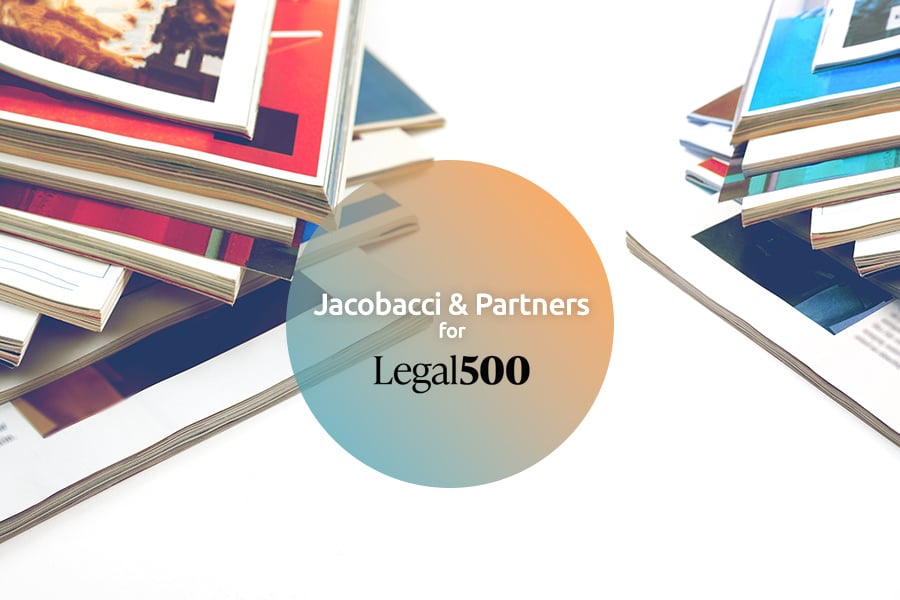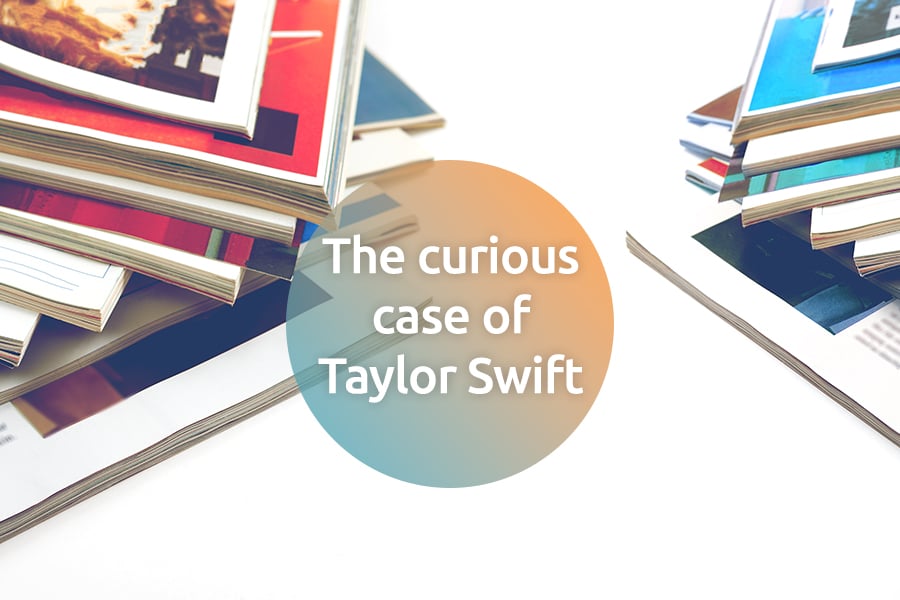Internationally renowned popstars seek to control and convert into money as many aspects of their creative works and persona as possible. This is made possible by the existence of intellectual property rights, which are increasingly and strategically deployed by artists for precautionary and lucrative purposes. An example in which creativity and entrepreneurship are excellently blended is the American singer-songwriter and record-breaker, Taylor Swift.
The latest news from the world of online music
Today the world's number one platform that allows users to stream music online is Spotify, a Stockholm-based company holding a market share of around 30.3% in the music streaming space, with 574 million active users in 2023 and a presence in 184 countries. The Swedish company leads the music streaming landscape, ahead of Apple Music (13.7 %), Tencent Music (13.4 %), Amazon Music (13.3 %) and YouTube Music (8.9 %), and has managed to stay relevant in a fairly competitive market for more than a decade.
Every December, the music giant publishes statistics regarding the previous twelve months through an advertising campaign called Spotify Wrapped, which since 2016 has become a fixture for music fans and a viral phenomenon on social networks. In addition to publishing the ranking of the most listened to tracks globally, the platform allows each user to view their personal favourites and share it with their contacts on social media.
This year the top ten opened with Miley Cyrus' Flowers, which won two Grammys, one as 'album of the year' and the other as 'best pop solo performance', and closed with Taylor Swift's Anti-Hero, which also won two Grammys with its album Midnights, classified 'best pop vocal album' and 'album of the year'.
The latter has conquered the music realm in 2023, recording 26.1 billion global online listens and ruling the scene thanks to her new creations, the revival of her historical songs and the world tour entitled 'THE ERAS TOUR'. Born in 1989 in the small suburb of West Reading, Pennsylvania, Taylor Swift is not only a successful singer, but also a clever entrepreneur, whose earnings last year are estimated to be in the region of $1.82 billion.
Music and intellectual property
Intellectual property should be thought of as a set of intangible assets (i.e. artistic-musical works and trademarks) that are the fruit of the ingenuity and creative activity of individuals or companies, which as their creators have the right to exploit them economically. Today, the American singer-songwriter skilfully manages her intangible assets, and this skill comes from her 20 years of experience in the music industry and her awareness that she must also protect her talent from a materialistic point of view.
According to US copyright law, when a singer records a new song, there are two different copyrights corresponding to two different elements of the sound work: the first is copyright on the song or musical composition itself; the second is copyright on the original and official recording of that song. These two elements are subject to different rules and can be owned and licensed separately.
At the beginning of her career, an unknown and unreleased Taylor Swift had signed a contract with the record company Big Machine Records whereby she sold to the latter the original sound recordings of what would be her first six albums, in exchange for an upfront cash sum. Despite this, the singer-songwriter remained the owner of the lyrics and melodies of her songs, to which she continued to hold the music publishing rights, and this proved crucial later on.
Taylor Swift and the loss of her historical albums
Between 2006 and 2017, the union between T.S. and Big Machine Records led to the release of six widely successful albums, which officially crowned the singer as the new Princess of Country-pop, entitled: Taylor Swift (2006), Fearless (2008), Speak Now (2010), Red (2012), 1989 (2014) and Reputation (2017). Despite a fruitful collaboration with Big Machine Records, in 2018 T.S. decided to move to another label (Republic Records), while the following year Big Machine Records was sold to producer Scooter Braun, along with the originals of the singer-songwriter's first six albums.
Despite various negotiation and judicial attempts, Taylor Swift never managed to acquire the rights to the original versions of her first six albums. Luckily enough, T.S. still owned the lyrics and melodies of her songs, so her idea was to re-record her albums distinguishing them from their predecessors under the trademark 'TAYLOR'S VERSION'. The relaunch of the rebranded historical albums was an immediate success, not least because it was the long-awaited and dramatic revenge of (our) 'anti-heroine' Taylor Swift, amplified by the international audience of fans who determinedly support the singer.
Taylor Swift's trademarks
Taylor Swift started protecting her brands in 2008 and has never stopped since, reaching impressive figures - bearing in mind that, however famous, it is still the portfolio of a musical performer. To give an idea of the magnitude, consider that today in the US Federal Trademark Registry alone, there are 137 registrations and 40 active trademark applications in the name of his company TAS Rights Management LLC. Of these, there are 69 registrations and 7 trademark applications containing the name 'TAYLOR SWIFT' or the initials 'TS'. If, on the other hand, we consider pending or registered trademarks worldwide, the number of titles rises to 495, of which 30 are international registrations with validity in several countries.
In addition to her own patronymic and initials, the singer has also recorded some album titles (i.e. "MIDNIGHTS", "SPEAK NOW", "LOVER", "FOLKLORE" and "REPUTATION") and songs (such as "SHAKE IT OFF", "...READY FOR IT? ", "LOOK WHAT YOU MADE ME DO" and "BLANK SPACE" - which is also the name of her cat) and even some verses ("THE OLD TAYLOR CAN'T COME TO THE PHONE RIGHT NOW" or "WELCOME TO NEW YORK, IT'S BEEN WAITING FOR YOU"), as well as the name of the latest tour "TAYLOR SWIFT THE ERAS TOUR". In doing so, T.S. demonstrated the importance of expanding the horizon of trademark protection to the various distinctive aspects of musical works. In addition to these, the artist has also filed other distinctive signs, such as the title of her never published youth book 'A GIRL NAMED GIRL', the line she uttered in a videotape that went viral on YouTube 'JE SUIS CALME' and the title of a self-dedicated Christmas event 'SWIFTMAS'.
The product coverage of T.S.'s brands
When filing a trademark application, the owner must also declare for which goods and services it will be used. Taylor Swift's trademarks are registered in respect of a wide range of goods, but the ones most frequently claimed by the singer-songwriter are in order: entertainment services in Class 41 (which includes concerts), sales services in Class 35 (which also includes e-commerce platforms for the sale of music goods), clothing items in Class 25 (e.g. t-shirts, sweatshirts, caps), printed paper goods in Class 16 (which also include covers, posters, photographs, magazines and books) and, of course, recorded audio-visual content in Class 9 (in particular: songs and videos in digital format or recorded on physical media). Recordings in these merchandise categories also allow her to safely launch marketing and merchandising projects gravitating in the orbit of planet Swift, which translate into higher revenues even if not strictly related to music.
What the Taylor Swift case teaches us
The singer's strategic approach in registering her trademarks and in the context of re-releasing her albums demonstrates considerable legal acumen in protecting intellectual property rights. As she progressed in her ascent in the music industry, it is evident that Taylor Swift also developed an ability to safeguard her intangible assets and artistic legacy.





